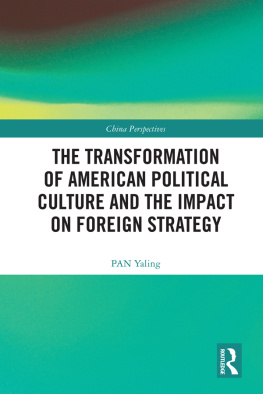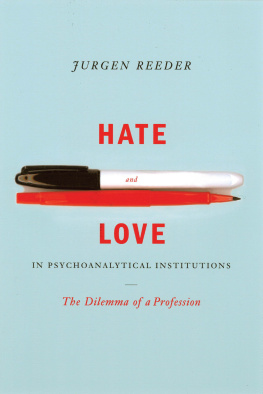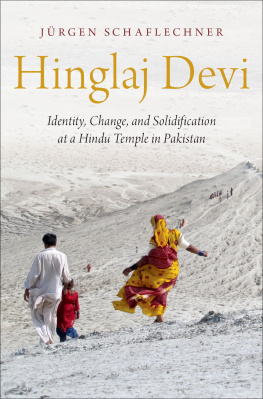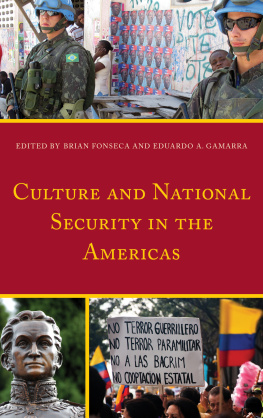ASEAN's Diplomatic and
Security Culture
Member states of ASEAN the Association of South-East Asian Nations have developed a distinctive approach to political and security co-operation, which builds on the principles of sovereign equality, non-intervention and non-interference, quiet diplomacy, mutual respect, and the principle of not involving ASEAN in mediating bilateral disputes among the membership.
This book examines the origins of ASEAN's diplomatic and security culture and analyses how over time its key principles have been practised and contested as ASEAN states have responded to regional conflicts as well as challenges posed by the major regional powers, ASEAN's enlargement, and the Asian financial crisis. The book goes on to assess whether ASEAN's diplomatic and security culture is likely to remain salient as the political, economic and security context in which regional leaderships operate is undergoing further change.
Jrgen Haacke is Lecturer in International Relations at the London School of Economics and Political Science.
First published in hardback 2003
First published in paperback 2005
by Routledge
2 Park Square, Milton Park, Abingdon, Oxon OX14 4RN
Simultaneously published in the USA and Canada
by Routledge
270 Madison Ave, New York, NY 10016
Routledge is an imprint of the Taylor & Francis Group
Transferred to Digital Printing 2009
2003, 2005 Jrgen Haacke
Typeset in Times by
Taylor & Francis Books Ltd
All rights reserved. No part of this book may be reprinted or reproduced or utilised in any form or by any electronic, mechanical, or other means, now known or hereafter invented, including photocopying and recording, or in any information storage or retrieval system, without permission in writing from the publishers.
British Library Cataloguing in Publication Data
A catalogue record for this book is available from the British Library
Library of Congress Cataloging in Publication Data
A catalog record for this book has been requested
ISBN10: 0700716521 (hbk)
ISBN10: 041554632X (pbk)
ISBN13: 9780700716524 (hbk)
ISBN13: 9780415546324 (pbk)
ISBN10: 0415374170 (Taylor & Francis Asia Pacific paperback edition)
Preface and acknowledgements
This book began to take shape in the mid-1990s when I was struck by the ferocity of exchanges carried in the international press and scholarly journals on the so-called ASEAN way. In the event, debates on the ASEAN way would intensify further after the onset of the Asian financial crisis, and they continue to this day.
Contrary to many others, I have never been persuaded that it is best to dismiss the ASEAN way as an analytical category, or its relevance as a diplomatic and security practice. Equally, however, I have felt that there are good reasons to treat with caution overly effusive claims by those celebrating its success in contributing to regional stability or its role in constructing collective identities in Southeast Asia.
My interest in the ASEAN way has focused above all on exploring its meaningfulness and relevance as a normative framework for political and security co-operation as seen by regional decision-makers. It is this interest that has also led me to explore the circumstances and motivations underlying the endorsements of or challenges to ASEAN's diplomatic and security culture, and to examine to what extent collective understandings of its core norms and associated practices have developed over time.
The book is derived from a doctoral thesis examined in the Department of International Relations at the London School of Economics in October 2000. In writing and completing the original dissertation and then refining the argument for publication, I have benefited from the advice, comments and assistance of a significant number of people and organisations. First and foremost, I would again like to thank Professor Michael Yahuda, as my principal supervisor, who has proved a continuous source of intellectual stimulation and challenge, and without whose unfaltering encouragement and gentle guidance this project would not have been brought to fruition. Equally, I am very grateful indeed to Dr Peter Wilson for co-supervising the thesis and providing all-round support at all times. I am also grateful to Professor Michael Leifer and Professor Richard Higgott, the internal and external examiner, respectively, not only for having passed the thesis, but also for providing valuable suggestions on how further to improve it. I would, in particular, like to acknowledge the intellectual debt I owe to the late Michael Leifer, whose scholarship on Southeast Asia I have found nothing short of truly inspirational.
In writing this book, I have, moreover, benefited from the opportunities and support offered to me by several institutions and their staff. I found the London School of Economics a wonderful place in which to conduct research and to grow intellectually. Numerous members of staff, in addition to my supervisors, made it a greatly enjoyable experience, not least Professor Christopher Hill, Professor William Wallace, Dr Hayo Krombach and Michael Banks, all of whom provided general guidance. I am also indebted to Dr Kay Mller of Stiftung Wissenschaft und Politik, who, in the summer of 1996, supervised some of my early work on China's stance on multilateral institutions in the Asia-Pacific. I am, moreover, grateful for having been given the opportunity to conduct research on ASEAN at the Institute of Southeast Asian Studies in Singapore in 1998. The excellent library facilities there proved very helpful indeed, and I have fond memories of conversations with staff. I also owe a particular debt of gratitude to the Shanghai Institute of International Studies, especially its former President Professor Chen Peiyao and its Academic Director Zhao Gancheng. Both gave very generously of their time in July 1998 and provided a helping hand in organising many of my interviews with representatives of a number of research institutions in Shanghai and Beijing. Last but not least in this context, I more than happily acknowledge the tremendous encouragement and support that I have received from Professor Jeremy Jennings, currently Head of the Department of Political Science and International Studies at the University of Birmingham, which I joined in the autumn of 1999. Without this encouragement and support, the book would have taken much longer to complete.
Research for this book could not, of course, have been undertaken without financial support. I gratefully acknowledge having been in receipt of a research studentship from the Economic and Social Research Council. I also gratefully acknowledge the additional research studentships awarded by the London School of Economics. A travel grant from the University of London Central Research Fund enabled me to conduct fieldwork in Singapore, Malaysia, Thailand, the Philippines, Indonesia and China. Funds granted by the Department of Political Science and International Studies as well as by the School of Social Sciences at the University of Birmingham allowed me to do further fieldwork in Vietnam and Laos.
I have also benefited from the kindness and helpfulness of numerous individuals. A large number of scholars, journalists and officials shared with me their insights into various aspects of the international politics of Southeast Asia. For this I am very grateful. I am also very grateful to Dr Dino Patti Djalal and his family for their warm hospitality extended to me in July 1998 while I was in Jakarta, and the generous time and organisational assistance then also given to me by Dr Kusnanto Anggoro. Similarly, my thanks go to Drs Stefan Fittkau and Kim Ong-Giger whose respective hospitality I enjoyed at various points in time between May and August 1998 when conducting fieldwork in Singapore.









